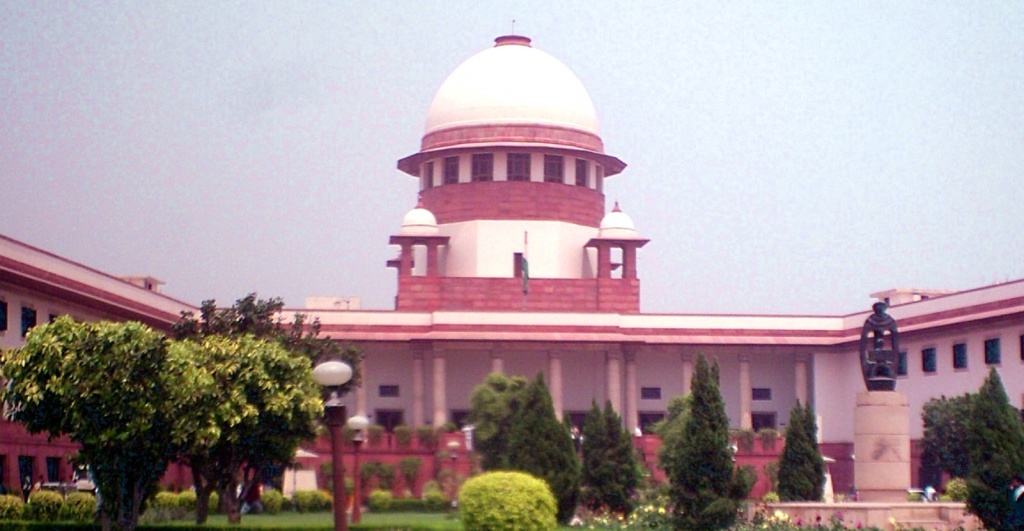
In one of its recent judgements, the Supreme Court has discussed in detail, the scope of application of Section- 17A of Prevention of Corruption Act and noted that it is not retrospective in nature
The Bench comprising of Justice Indira Banerjee and Justice J.K. Maheshwari significiently observed that Section 17A of the Act came into force on 26th July 2018, and provides that there cannot be any enquiry, inquiry, investigation without prior approval of the appropriate authority.
The appeals herein are filed against the judgment of the Rajasthan High Court, quashing FIR registered against respondent under Section 13(1)(g) and 13(2) of the PC Act read with Sections 420, 467, 468, 471 and 120B of IPC. The High Court quashed the FIR on the ground that the Investigating Authorities had failed to obtain previous approval of the State Government under Section 17(A) of the PC Act before registering the said FIR against the accused persons.
The Court noted that Section 17(A) of the PC Act, has been incorporated by amendment of the Prevention of Corruption Act, 1988, with effect from 26th July, 2018 and which is post the registeration of the said FIR on 01.01.2018.
The main question for the consideration of Court was whether Section 17A of the PC Act would apply to an investigation which had commenced before Section 17A was enacted/enforced.
The Court at the outset noted that it is a cardinal principle of construction that every statute is prospective, unless it is expressly or by necessary implication made to have retrospective operation. There is a presumption against retrospectivity. An express provision should ordinarily be made to make a statute retrospective. The presumption against retrospectivity may also be rebutted by necessary implication. It refrred to Sumangalam Coop. Housing Society Ltd Vs. Suo Motu, High Court of Gujarat & Ors, 2007 Latest Caselaw 1 SC
"The device of a legal fiction can also be used to introduce retrospective operation. Generally, it is considered that every statute dealing with substantive rights is prima facie prospective unless it is expressly or by necessary implication made retrospective. 8. In T.N. Bettaswamaiah vs. State of Karnatak."
Referrence was made to G.J. Raja v. Tejraj Surana, 2019 Latest Caselaw 605 SC where the Court followed the judgment of this Court in Hitendra Vishnu Thakur Vs. State of Maharashtra, 1994 Latest Caselaw 353 SC and held that a statute which affect substantive rights is presumed to be prospective in operation unless made retrospective and unless textually impossible a statute which merely affects procedure is presumed to be retrospective. However, a statute which not only changes the procedure but also creates new rights or liabilities is to be construed to be prospective in operation, unless otherwise provided either expressly or by necessary implication.
The Court mentioned that in STATE OF TELANGANA vs. MANAGIPET @ MANGIPET SARVESHWAR REDDY, 2019 Latest Caselaw 1209 SC, Court rejected the arguments that amended provisions of the PC Act would be applicable to an FIR, registered before the said amendment came into force and found that the High Court had rightly held that no grounds had made out for quashing the proceedings.
In view of the above, the Court noted:
"It is a well settled principle of interpretation that the legislative intent in the enactment of a statute is to be gathered from the express words used in the statue unless the plain words literally construed give rise to absurd results. This Court has to go by the plain words of the statute to construe the legislative intent, as very rightly argued by Mr. Roy. It could not possibly have been the intent of the legislature that all pending investigations upto July, 2018 should be rendered infructuous. Such an interpretation could not possibly have been intended."
Taking note that learned Senior Counsel appearing on behalf of the respondent doesn't seriously dispute the proposition of law that Section 17A does not have retrospective operation and however, argued that the Court might have looked into the merits and, in particular, the fact that investigation had ultimately been closed. Therefore, the Court didn't go into that aspect since the High Court has quashed the proceedings only on the ground of permission not having been obtained under Section 17A of the PC Act.
It therefore set aside the impugned judgement accordingly.
Social media is bold.
Social media is young.
Social media raises questions.
Social media is not satisfied with an answer.
Social media looks at the big picture.
Social media is interested in every detail.
social media is curious.
Social media is free.
Social media is irreplaceable.
But never irrelevant.
Social media is you.
(With input from news agency language)
If you like this story, share it with a friend!
We are a non-profit organization. Help us financially to keep our journalism free from government and corporate pressure












0 Comments